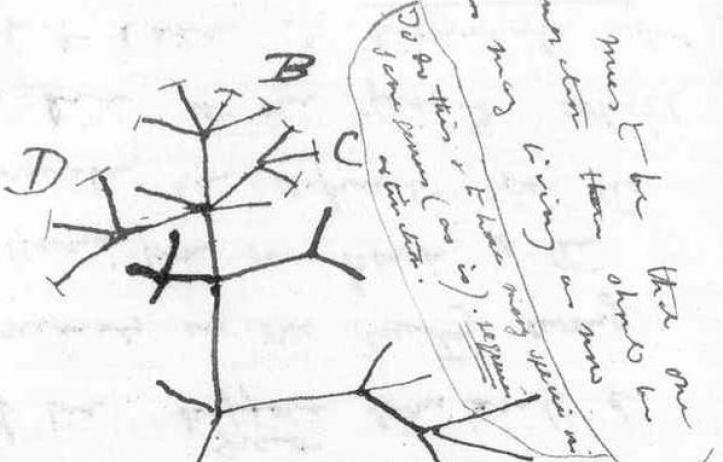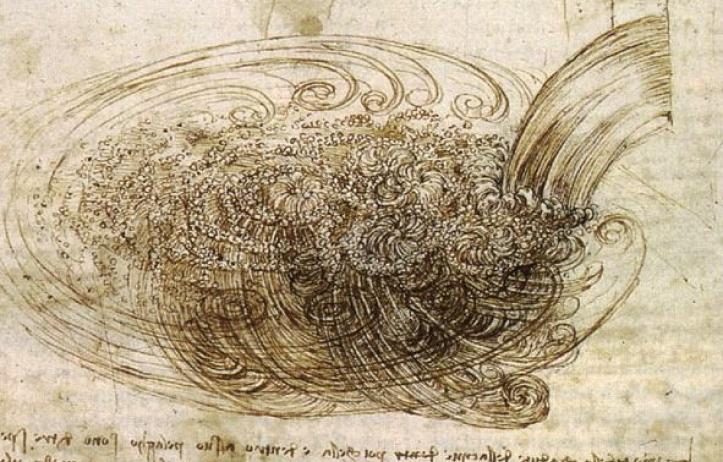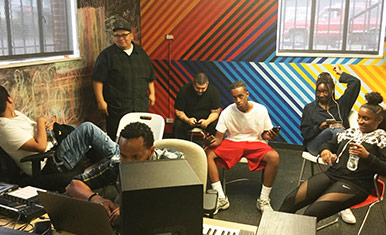Interrogating Interdisciplinarity
I’m grateful to Tom Romero for inviting me to contribute a post examining the concept of interdisciplinarity (for a bunch of relevant resources previously compiled for the DU community, go here). Tom anticipates that our conversation about the “I”s in IRISE will be “complex, contradictory, and contentious.” So I’ll jump right in by challenging the working definition of interdisciplinarity that Tom provides from the National Academy of Sciences Committee on Facilitating Interdisciplinary Research:
"Interdisciplinary research is a mode of research by teams or individuals that integrates information, data, techniques, tools, perspectives, concepts, and/or theories from two or more disciplines or bodies of specialized knowledge to advance fundamental understanding or to solve problems whose solutions are beyond the scope of a single discipline or area of research practice."
The useful assumption here is that disciplines are inherently limited in their ability to make sense of the world and to solve our most compelling existential problems. More problematic is the assumption that “integrating” (whatever that means) the respective elements of individual disciplines will move us forward. This “add disciplines and stir” mentality is part and parcel of a modern academic culture still defined by highly specialized areas of scholarly inquiry, and where “truth” isn’t established until the last specialist has weighed in. The National Academy of Sciences definition may not go far enough in capturing the power, potential and driving purpose of interdisciplinary work.
Alternatively, there’s this from Stephen Fuller, as channeled by Jerry Jacobs and Scott Frickel in their article "Interdisciplinarity: A Critical Assessment", Annual Review of Sociology 35:43-65, 2009:
"The point of interdisciplinarity is not to build on methods and insights from existing disciplines—a common, but misguided approach that mistakenly assumes combining methods makes for better knowledge. Instead, the transformative promise of interdisciplinarity lies in its capacity to interpenetrate disciplines, changing what they do by providing communicative forms and channels for renegotiating disciplinary boundaries and generating new epistemic standards."
Fuller usefully suggests that the best interdisciplinary work transforms the participating disciplines by altering their boundaries and their standards for evaluating knowledge-claims. However, I’m not sure that he fully appreciates the tenacity of disciplines to resist change and their deeply rooted instincts to reproduce themselves. Moreover, his focus on process and method rather than theory perhaps misses the potential of interdisciplinary work to create brand new objects of inquiry that can’t be comfortably accommodated by disciplinary boundaries no matter how permeable or elastic.
So, how about this from Roland Barthes (“Jeunes Chercheurs”, 1972):
“Interdisciplinary work, so much discussed these days, is not about confronting already constituted disciplines (none of which, in fact, is willing to let itself go). To do something interdisciplinary it’s not enough to choose a “subject” (a theme) and gather around it two or three sciences. Interdisciplinarity consists in creating a new object that belongs to no one.”
Bingo. Interdisciplinary work is not about combining people from different fields only to have them do the same old stuff in the company of others. Established disciplines already have substantial track records of borrowing, sharing, and poaching topics, theories, and methods across the boundaries that divide them. Such practices are captured by the concepts of multi-disciplinarity and cross-disciplinarity. Interdisciplinarity is the co-creation of something new, including new “inter-disciplines.”
In my 25+ years at DU I’ve had the privilege of exploring–in several team teaching contexts–new models, metaphors and methods for understanding the world with colleagues having fine interdisciplinary sensibilities. Greg Robbins in Religious Studies taught me the ins and outs of a “process theology” that fully respects accumulated scientific knowledge about the nature of the world. Jim Platt and Mike Monahan in Biological Sciences inspired my interest in an evolutionary anthropology that challenges my discipline’s central conceit that culture can adequately explain similarities and differences in human behavior across all time and space. Kyle Cascioli—an occasional adjunct instructor in the Burns School of Real Estate and Construction Management and practicing professional—led me toward an alternative to “Highest and Best Use” as a criterion for urban property development, one that’s rooted in an ethos of Culturally Appropriate Use and a broader framework of Intercultural Urbanism (as distinct from the more mainstream notion of “multicultural urban planning”).
Thus, interdisciplinary work implicates significant lacunae in the way traditional disciplines understand the world. At the very least it complicates their particular understandings. While this is a good thing, there can be significant penalties for thinking and acting interdisciplinarily. They are experienced in the classroom, on the job market, and in university governance. Still, the rewards far outnumber the risks. IRISE leaders and advisors recognize this. The Big Questions for IRISE going forward concern the willingness and ability of university agents at multiple levels to promote interdisciplinary teaching and research on the subject of Inequality. They are questions that many other faculty are asking with regard to another major campus conversation, the one percolating around Sustainability. In an earlier essay I summarized these questions, and I think they’re worth re-heating and spicing up here:
- Will the established academic departments at DU help IRISE pool expertise and resources in ways that can raise their own boats while furthering a common endeavor?
- Will participants in collaborative projects to study inequality be able to recognize new analytical ground that no single discipline currently occupies?
- Will participants be able to collectively imagine and invent the brand new models, metaphors and methods that might be required for solving the numerous equity problems that currently bedevil us? Or, re-interrogate much older concepts that, because of contemporary circumstances, have been given new life as entry points to social analysis (e.g., Marx’s concept of class ).
- Given that interdisciplinary work tests inter-personal as well as professional skills, will collaborators be able to subordinate individual egos and career ambitions to a greater cause?
- Will promotion and tenure committees at different levels of the university, and the individual deans of academic units, fully appreciate what interdisciplinary scholarship involves... including the sacrifices?
- Will the central administration actively and publicly encourage interactions and synergies between departments, institutes, centers and “incubators” in ways that can advance the institution’s mission to serve the public good?
- Will academic leaders and DU propaganda machines recognize and reward interdisciplinary work that breaks new ground in the study of inequality? In 2014 we were presented with two opportunities, both related to the 150th anniversary of the institution. Original and highly successful interdisciplinary research on immigrant working class history was ignored. It remains to be seen whether critical interdisciplinary research on DU’s founding in the context of indigenous peoples history will be more highly regarded.
- Perhaps most importantly, will academic leaders help IRISE recruit and retain—for the long haul—the historically underrepresented faculty that will help us look a little more like the public and the city we seek to serve?
How these questions are answered will determine whether DU will boldly lead in tackling one of the great problems of early 21st century life, or cautiously follow others. I suppose time will tell.






